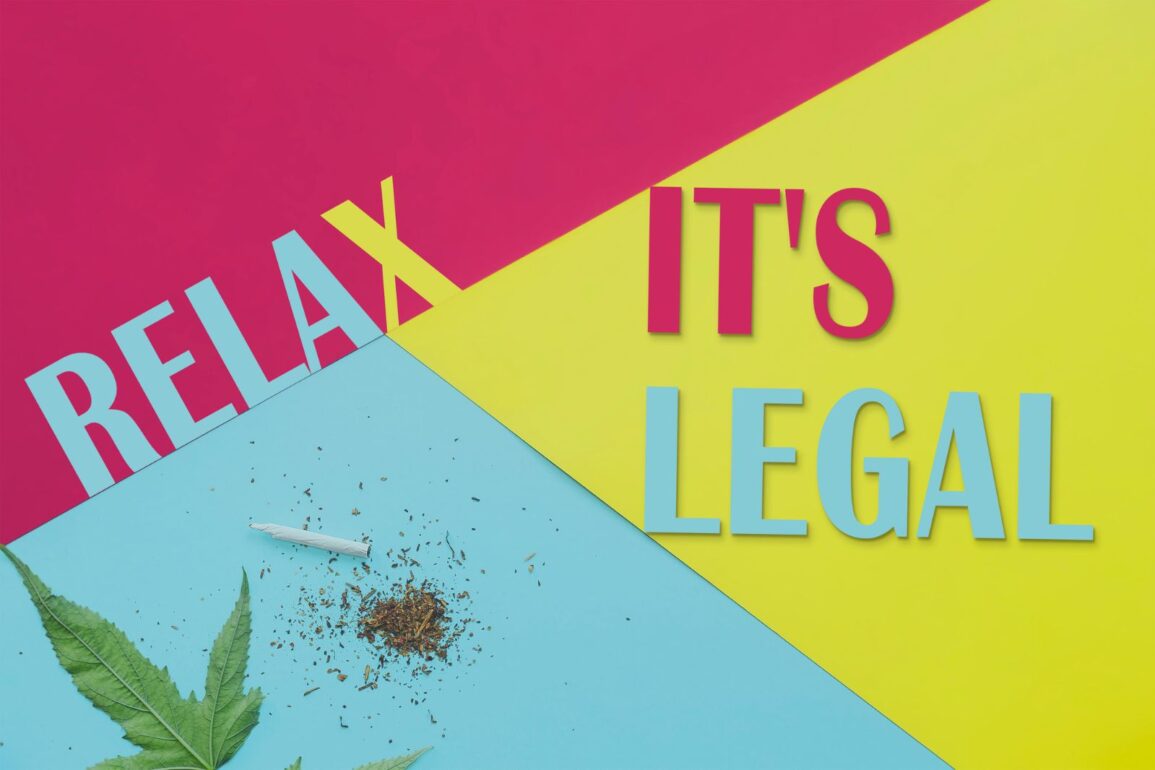Cannabis contains tetrahydrocannabinol (delta-8 THC). The legal status of this substance depends on the jurisdiction and can vary from country to country and state to state. Know Is Delta-8 THC legal or not?
Delta-8 THC, for example, has a somewhat ambiguous legal status in the United States. The federal government regulates delta-9 THC as a controlled substance, but it does not specifically address delta-8 THC. Delta-8 THC has been explicitly banned in some states, while it’s allowed in others, subject to certain regulations. State laws may change at any time, so it’s advisable to check the current laws in your state.
It is also possible for delta-8 THC to be illegal outside of the United States. Understanding the specific laws and regulations in your country or region is essential to determining its legal status.
It is best to consult local authorities, legal professionals, or regulatory agencies familiar with your jurisdiction’s laws regarding delta-8 THC’s legality.
Table of Contents:
- Why is delta-8 legal?
- In what states is delta-8 legal?
- States that regulate delta-8
- States where delta-8 is banned
- Looking ahead to the 2023 farm bill
- The cannabis conundrum
Why is delta-8 legal?
Depending on which jurisdiction you live in, delta-8 THC (tetrahydrocannabinol) may have a different legal status. In some places, delta-8 THC is considered legal, while in others, its legality is unclear or restricted. For the most up-to-date information, consult the laws specific to your area since laws and regulations can change over time.
The legality of delta-8 THC is influenced by various factors, including its chemical composition and source. Cannabis or hemp plants can produce delta-8 THC. Hemp-derived delta-8 THC is often subject to different regulations than delta-8 THC derived from cannabis with higher concentrations of delta-9 THC.
Delta-8 THC, for example, is subject to complex legal regulation in the United States. As long as delta-9 THC concentrations remain below 0.3% on a dry weight basis, the 2018 Farm Bill legalized hemp and hemp-derived products, including cannabinoids such as delta-8 THC. However, some states have enacted additional regulations or bans specifically targeting delta-8 THC.
There are different reasons why delta-8 THC is legal in different jurisdictions. The reason for this may be the absence of explicit regulations or the interpretation of existing laws. Additionally, the legal status of delta-8 THC can be influenced by ongoing discussions and debates surrounding cannabis policy, public health concerns, and law enforcement priorities.
To ensure accurate and up-to-date information regarding the legality of delta-8 THC, it’s best to consult local authorities, legal professionals, or regulatory agencies familiar with the laws in your jurisdiction.
In what states is delta-8 legal?
The legality of delta-8 THC (tetrahydrocannabinol) can vary from state to state within the United States. In order to get the most up-to-date information, it’s best to consult the specific laws in your area. In the United States, delta-8 THC is legal under the following conditions:
- It is illegal to sell, possess, or use delta-8 THC in several states that have passed laws or regulations to prohibit or restrict its use, sale, or possession. Among these states are Alaska, Arizona, Arkansas, Colorado, Delaware, Idaho, Iowa, Kentucky, Mississippi, Montana, Rhode Island, and Utah. It’s important to verify the current laws in these states as they may change.
- Some states allow delta-8 THC with restrictions: Certain states permit the sale and use of delta-8 THC, but they have imposed specific regulations or restrictions. For example, some states require labeling and testing requirements, age restrictions, or limitations on delta-9 THC content. States that fall into this category may include California, Florida, Georgia, Illinois, Louisiana, Michigan, Oregon, Texas, and Washington, among others.Each state has its own specific regulations, so it is important to check them.
- Some states have not explicitly addressed delta-8 THC: There are states where delta-8 THC is not explicitly regulated or addressed in their cannabis laws.There may be some confusion about delta-8 THC’s legal status in these situations, so it’s a good idea to consult local authorities or legal professionals.
It’s worth reiterating that laws can change, and new regulations can be enacted.To determine delta-8 THC’s legality, you should check your state or jurisdiction’s current laws and regulations. Local authorities, legal professionals, or regulatory agencies familiar with the laws in your area can provide the most accurate and up-to-date information.
States that regulate delta-8
As of my knowledge cutoff in September 2021, several states in the United States have implemented regulations specifically addressing the sale, possession, or use of delta-8 THC (tetrahydrocanBecause laws can change over time, it’s important to consult your local laws for the most current information.
- Colorado: Colorado has established regulations for hemp products, including delta-8 THC. The state requires testing and labeling for potency and contaminants.
- Florida: Products containing delta-8 THC are regulated in Georgia. In order to manufacture, distribute, and sell these products, the state requires a license.
- Georgia: Georgia has regulations governing the sale, possession, and production of delta-8 THC products. The state requires licensing for the manufacture, distribution, and sale of these products.
- Illinois: Illinois has implemented regulations for delta-8 THC products. The state requires testing, labeling, and packaging standards for these products.
- Michigan: Michigan has established regulations for delta-8 THC products, including requirements for testing, labeling, and licensing.
- Texas: Texas has regulations in place regarding the sale, distribution, and possession of delta-8 THC. These products must comply with state labeling requirements.
- Washington: Washington has regulations that govern the sale and use of delta-8 THC. The state requires licensing and testing for delta-8 THC products.
States may have their own specific regulations and requirements, so keep that in mind. Additionally, other states not listed here may have implemented regulations since my knowledge cutoff. Therefore, it’s crucial to consult local authorities, legal professionals, or regulatory agencies in your state for the most accurate and up-to-date information on delta-8 THC regulations.
States where delta-8 is banned
As of my knowledge cutoff in September 2021, several states in the United States have explicitly banned or restricted the sale, possession, or use of delta-8 THC (tetrahydrocannabinol). It’s important to note that laws and regulations can change over time, so it’s essential to consult the specific laws in your area for the most up-to-date information. Here are some states that have implemented bans or restrictions on delta-8 THC:
- Alaska: Alaska has explicitly banned the sale and possession of delta-8 THC.
- Arizona: Arizona has enacted laws that prohibit the sale, possession, or use of delta-8 THC.
- Arkansas: Arkansas has implemented regulations that prohibit the sale, possession, or use of delta-8 THC.
- Colorado: Although Colorado regulates delta-8 THC, some local jurisdictions within the state have imposed bans or restrictions on delta-8 THC products.
- Delaware: Delaware has laws in place that ban the sale, possession, or use of delta-8 THC.
- Idaho: Idaho has explicitly banned the sale, possession, or use of delta-8 THC.
- Iowa: Iowa has enacted regulations that prohibit the sale, possession, or use of delta-8 THC.
- Kentucky: Kentucky has laws in place that ban the sale, possession, or use of delta-8 THC.
- Mississippi: Mississippi has implemented regulations that prohibit the sale, possession, or use of delta-8 THC.
- Montana: Montana has laws in place that ban the sale, possession, or use of delta-8 THC.
- Rhode Island: Rhode Island has enacted regulations that prohibit the sale, possession, or use of delta-8 THC.
- Utah: Utah has explicitly banned the sale, possession, or use of delta-8 THC.
It’s important to note that the legal landscape can change, and new regulations can be enacted. Therefore, it’s crucial to verify the current laws and regulations in your state or jurisdiction to determine the legality of delta-8 THC. Local authorities, legal professionals, or regulatory agencies familiar with the laws in your area can provide the most accurate and up-to-date information.
Looking ahead to the 2023 farm bill
As of my knowledge cutoff in September 2021, I don’t have specific information about the contents or provisions of the 2023 Farm Bill. Farm bills are comprehensive pieces of legislation that address various aspects of agricultural policy, including crop subsidies, nutrition programs, rural development, and sometimes provisions related to hemp and cannabis.
Farm bills are typically passed every five years in the United States and go through a legislative process that involves drafting, amendments, committee review, and ultimately passage by Congress. It’s important to note that the specific provisions of the 2023 Farm Bill are not known until the bill is proposed, debated, and finalized by lawmakers.
To stay informed about the progress and content of the 2023 Farm Bill, it’s advisable to follow news updates from reliable sources, pay attention to legislative developments, and consult government websites and resources related to agriculture and hemp/cannabis policy.
The cannabis conundrum
The “cannabis conundrum” refers to the complex and often debated issues surrounding the legalization, regulation, and use of cannabis. This conundrum arises due to the divergent perspectives and conflicting considerations associated with cannabis.
On one hand, proponents of cannabis legalization argue for its potential medical benefits, economic opportunities, and personal freedom. They highlight studies indicating that cannabis may have therapeutic properties, particularly in the treatment of chronic pain, epilepsy, and certain mental health conditions. They also emphasize the potential for tax revenue and job creation through a regulated cannabis industry. Additionally, proponents argue that individuals should have the freedom to make choices regarding their own cannabis use.
On the other hand, opponents of cannabis legalization express concerns about potential health risks, increased drug abuse, impaired driving, and the gateway theory (the idea that cannabis use could lead to the use of more dangerous drugs). They also raise concerns about the societal and public safety implications of cannabis legalization. Critics argue that the long-term health effects of cannabis use are still not fully understood, and there is a need for more research to determine its potential risks and benefits.
The cannabis conundrum also extends to the legal and regulatory frameworks governing cannabis. The legal status of cannabis varies greatly across jurisdictions, ranging from complete prohibition to various degrees of legalization and regulation. This patchwork of laws creates challenges in terms of enforcement, taxation, consumer protection, and ensuring public health and safety.
The conundrum is further compounded by the fact that cannabis remains classified as a Schedule I controlled substance under United States federal law, despite the legalization of cannabis for medical or recreational purposes in several states. This creates a conflict between state and federal laws, leading to complexities in areas such as banking, interstate commerce, and access to financial services for cannabis businesses.
To address the cannabis conundrum, ongoing discussions, research, and policy debates are necessary. Policymakers, healthcare professionals, researchers, law enforcement agencies, and other stakeholders continue to explore ways to strike a balance between access to cannabis, public health considerations, regulation, and social concerns.
Disclaimer – The contents of this article are provided solely for informational purposes and should not be considered medical advice. It is important to note that the information presented here is not meant to diagnose, treat, cure, or prevent any disease. Prior to embarking on any new health-related regimen, Always consult your healthcare provider before trying new supplements or treatments. Keeping you safe and well is our top priority. Additionally, it’s important to note that the FDA has not endorsed any claims regarding the health benefits of cannabis. Delta8Hub makes no guarantees or warranties regarding the accuracy, completeness, or usefulness of any messages contained here in.

